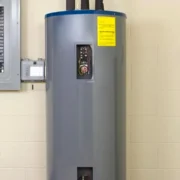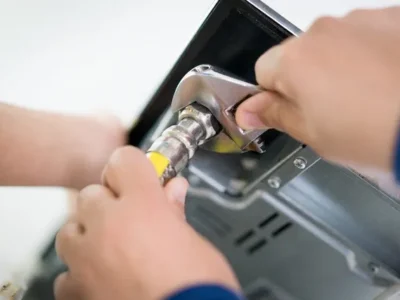Kerosene heaters have served as a dependable heat source in various indoor and outdoor situations. However, the query of whether diesel fuel may be used as a replacement frequently arises in circumstances when kerosene may be in short supply.
Although the two fuels are similar, they each have unique qualities that can have a big influence on how well they work in kerosene heaters. This will explore the important issues of replacing kerosene with Diesel, highlighting potential safety risks and the viability of such a switch.
You will get a thorough knowledge of the hazards and implications connected with this practice by investigating the chemical makeup and igniting properties of these fuels.
You must worry about safety, too, as you make a switch between the fuels. So, in the debate of propane vs. kerosene heaters, we will help you make well-informed choices.
Diesel Usage in Kerosene Heater: A Reliable Choice?
In houses, businesses, and building sites, extra heat is frequently provided by kerosene heaters. They are effective, transportable, and generally easy to keep up. However, occasional misunderstanding exists about whether diesel and kerosene fuels may be interchanged for these heaters.
So, let’s get to know the truth.
1. The Composition

Both kerosene and diesel fuel are hydrocarbon-based fuels, and their chemical compositions are quite similar. They are not suited for direct interchangeability in some applications due to significant differences though. The ignition temperature is one key distinction.
Since kerosene has a lower flash point, kerosene heaters may ignite it more easily. The greater flash point of diesel fuel indicates that more heat is needed to ignite it. When trying to utilize diesel fuel in a kerosene heater, this attribute alone may be problematic.
2. The Safety Concerns

Any heating equipment should always be used with safety as the main concern. Trying to use diesel in a kerosene heater may result in hazardous circumstances.
- With the right air-to-fuel ratio, kerosene is burned effectively by heaters made specially for this purpose. Harmful gases like carbon monoxide can be released due to incomplete combustion caused by using diesel fuel.
- Due to its greater flash point, diesel fuel may be more difficult to ignite in a kerosene heater. This could result in faulty combustion, perhaps resulting in a build-up of unburnt fuel that raises the possibility of fire.
- Unlike kerosene, diesel fuel tends to burn with greater odor and emissions. For those who are exposed to the vapors, this may cause discomfort, respiratory irritation, and other health hazards.
- Kerosene heater parts have been specifically designed for use with this fuel. The heater’s lifespan might be shortened by increased wear and tear from diesel fuel.
Use of Diesel in Kerosene Heaters
Although technically possible, it is not advised to utilize diesel fuel in kerosene heaters because of the discussed safety issues. However, certain adjustments may be made to increase its compatibility in emergencies when kerosene is unavailable.
- Pre-heating diesel fuel can reduce viscosity and enhance ignite. The container can either be heated separately or submerged in warm water to do this. This approach does not, however, guarantee absolute safety or remove all threats.
- The air intake settings on some kerosene heaters may be changed. If diesel must be utilized as the last option, experimenting with these parameters may aid enhanced combustion. This is not, however, a suggested or ensured answer.
Thus, you may use diesel in a kerosene heater if required, but this experiment is not very recommended as it can be dangerous in many ways. So, if you are sure to use it, then follow the safety measures and take the required precautions.
Wrapping Up
Even though it could be alluring to think of using diesel instead of kerosene in a heater, the inherent hazards and safety issues outweigh any apparent benefits by a significant margin.
Diesel is a poor substitute due to the unique characteristics of these fuels due to variations in ignition temperatures and combustion efficiency. Using diesel in kerosene heaters might result in incomplete combustion, higher fire risks, and possible appliance damage.
In all heating situations, it is critical to follow manufacturer instructions and put safety first. When kerosene is not accessible, it is strongly encouraged to look into alternate heating options or to consult a specialist.
Convenience or resource availability should never take precedence over the safety of people and the integrity of the heating system.
Frequently Asked Questions
Can I Use Red Diesel Instead of Kerosene?
It is not advised to substitute red diesel for kerosene. Although the two fuels are similar, they have different qualities. Red diesel is meant for off-road use; kerosene is a heating fuel. Red diesel can cause incomplete combustion, higher fire hazards, and possible appliance damage when used instead of kerosene in a heater. It is essential to utilize the right fuel for each application while putting safety first and following manufacturer recommendations.
What Would Happen if You Put Diesel in a Kerosene Heater?
Using diesel in a kerosene heater might cause several issues. Diesel takes more heat to ignite than kerosene because it has a higher flash point. This may cause the heater to have trouble starting or burn evenly. It’s possible for combustion to be incomplete, generating dangerous chemicals like carbon monoxide. Additionally, burning diesel might result in greater and more offensive emissions and odors. It can be a risk for the users.













Comments